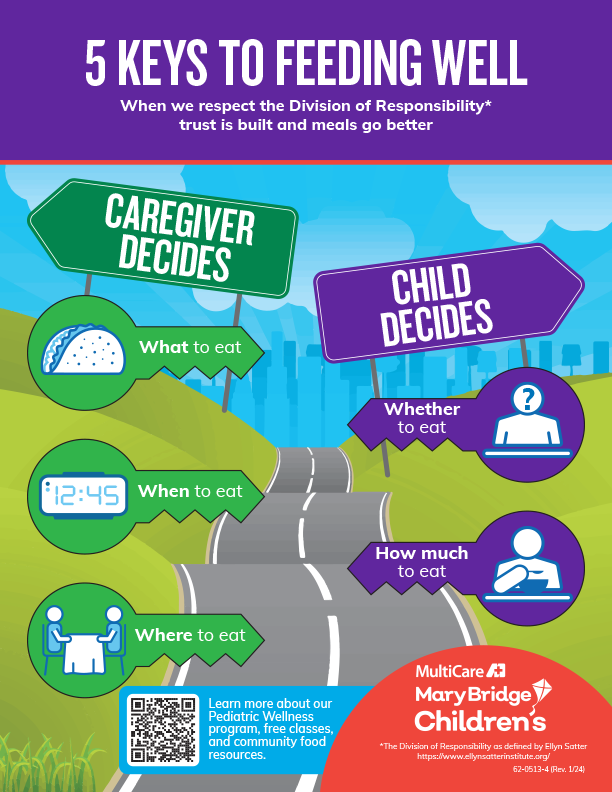The Division of Responsibility is a best practice developed by pediatric feeding expert, Ellyn Satter. It builds from an equitable and empowering place for families, caregivers and children, while focusing on root causes of the majority of eating challenges.
To learn more about the Division of Responsibility and feeding strategies for various ages throughout childhood, visit Feed in the right way for your child’s stage of development (ellynsatterinstitute.org).
5 keys to feeding well
Divide up the responsibilities as a starting place
Parent decides
What to eat
- Make meals and snacks from foods you enjoy and can provide easily.
- Offer meals for the family to share together, rather than catering to individual tastes. Include at least three different foods, where you know your child will eat at least one of them.
When to eat
- Keep meal times and snack times consistent. This gives you control of the kitchen and lets your child know when they will have opportunities to eat.
Where to eat
- Offer water between meals and snacks.
- Sharing a meal together is a place where family happens; out of a box or on a plate; at a table or sitting together elsewhere.
- Eating together helps children learn to eat the right amount of food for their own growth. Meals together also connect us to our history, teach us to eat a variety of foods, and support social and emotional growth.
Child decides
Whether to eat
- Allow your child to determine whether or not to eat, while sitting with the family at mealtimes. This allows them to:
- listen to their own body and eat the amount they need
- learn to eat the food you enjoy without pressure
- behave well at mealtimes
- grow predictably in the way that is right for them
How much to eat
- Allow your child to decide how much to eat without interference or guessing how much they need (ie. coaching them to try “one bite”, “eat those vegetables”, “not so much ice cream”, etc.). This helps your child by:
- teaching them to become a skilled and confident eater
- allowing them to be relaxed and joyful about eating, and feel trusted to take care of themselves with food
